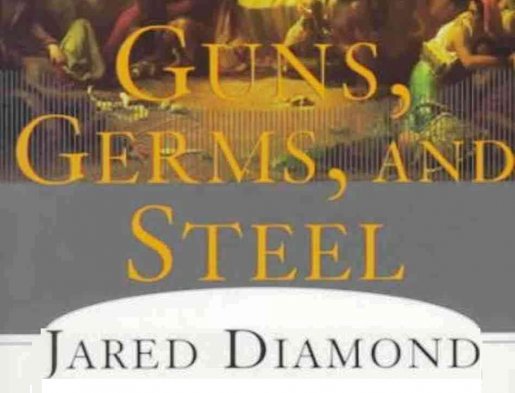Book Review: ‘Guns, Germs and Steel’ – Jared Diamond


Some time ago, while still in Italy, one of my assignments for the ‘Philosophy of Science' course was reading ‘Guns, Germs and Steel' by Jared Diamond- a physiology and geography professor at UCLA. The size was not promising, at all, but the content was anything but boring.
The book opens with Diamond describing his meeting with a New Guinean tribe chief who, whilst they were walking on a beach, asked him: "Why is it that you white people developed so much cargo and brought it to New Guinea, but we black people had little cargo of our own?".
With the word ‘cargo' meaning ‘material goods', the question gains a huge reach in the professor's mind. So, reformulating it, the question is: "How and why have all these differences between groups of people developed?". It is a really big question that some people have preferred to avoid by labeling others as ‘inferior' giving a start to racist theories, which Diamond wants to disprove with his whole argumentation.
The title may mislead the reader, the main argument is not about war or anything similar. ‘Guns, germs and steel' are actually the closest reasons why some groups of people throughout the world are more developed than others. It might seem rather obvious, but these are just the closest reasons.
Where do They Come From?
The answer that Diamond gives is that these factors, which have created differences between populations today, are basically due to the environmental issues in which men found themselves since man first had a presence on planet Earth.
Through different stories and examples from all over the world, most of which are based on the author's own incredibly wide experiences, Diamond mixes a technical and descriptive style. The book is full of historical and geographical details, and Diamond (for me at least) fulfills his aim of convincing the reader of his argument.
For instance, he argues that the Maori people conquered the Moriori people, once living in the same area, simply because the latter had moved to a more mountainous territory and due to that they couldn't develop as many skills (agriculture being the most important of these) as their neighbours. Another example, is that Spanish conquistador Pizarro defeated the Inca population back in the XVI century because the axis of the American continent is from North to South (disadvantageous), whereas the Euro-Asian one is West to East.
Could someone believe to such hasty theories? Apparently yes, and from the first page on they start to look more and more well founded until becoming very convincing.
‘Guns, Germs and Steel', considering the importance of the matters being dealt with, has received both a lot of criticism and praise. It won the Pulitzer Prize back in 1998 for Best General Non-Fiction book.
- Buy 'Guns, Germs and Steel' on Amazon
Umberto Barachetti is an Italian student currently studying at the University of Greenwich for 6 months on the ERASMUS programme away from the University of Bergamo. Read more of his posts here.








